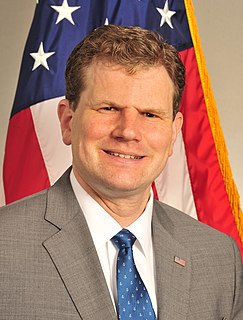A Quote by Martha Plimpton
Women know the financial, social and physical costs of not having access to basic health care.
Related Quotes
I think basic disease care access and basic access to health care is a human right. If we need a constitutional amendment to put it in the Bill of Rights, then that's what we ought to do. Nobody with a conscience would leave the victim of a shark attack to bleed while we figure out whether or not they could pay for care. That tells us that at some level, health care access is a basic human right. Our system should be aligned so that our policies match our morality. Then within that system where everybody has access, we need to incentivize prevention, both for the patient and the provider.
Since 1994, lawmakers on both sides of the aisle have considered it politically risky to offer a plan to fix America's broken health care system. The American public, though, has paid the price for this silence as health care costs skyrocketed, millions went uninsured, and millions more grappled with financial insecurity and hardship.










































